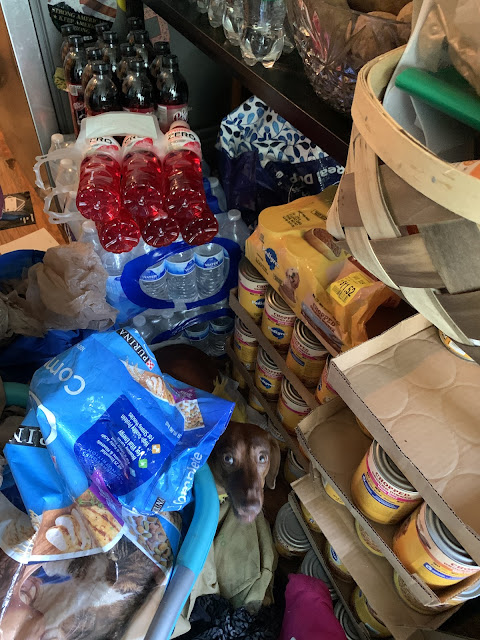This story needed a wee introduction. Some of the historical details are from stories passed down in my family. People in rural Georgia where my dad originated or the mountains of Alabama where my mother originated worked very hard and survived because of the help of one another.
My father's family was more affluent but not wealthy in the sense of the Roosevelts. Bullochs or other gentrified families. They were educated but the wealth was more a management of people and resources. My grandfather lost much of his money early when the banks failed in the 1930s. People would put checks in drawers and not cash them right away. My grandfather was broke from honoring the checks he had written prior to the banking collapse.
When my dad and three brothers returned after fighting in World War II. His father had died and everything had been sold for unpaid taxes. No one ever returned. There was no work in rural areas. The world had changed with automobiles, assembly lines, etc. What remained were the stories.
The
guilt was too much to bear. The hardest person to forgive is you. Only through the window glass of time do we
ever see how much time we wasted with guilt. Now duty is another matter.
Dorothea
Sullivan had natural pink red hair. She had gone to finishing school and wanted
to get a better education but it was 1874. They did not offer math at the first
finishing school her father visited because as the headmaster said, “It would
hurt the delicate mind of a female.” Her father Laurin Sullivan revolted from
the comment. This was his only child. The last thing he wanted was for her to
lose his fortune with a lack of understanding finance.
Laurin
Sullivan was far from rich. He owned a fair amount of land in South Georgia.
Sherman marched with his men quickly through that part of Georgia otherwise the mosquitoes would have picked them up and flown away. Dorothea married a man with
no money but an affable personality. Jack Bluett’s dimwits left Dorothea in despair.
By law, a woman could not vote much less own property.
People
had lived on her father’s farm since they were born. Some were white and many
were black. Some who moved away would move back but would never stay. They had
lost the rhythm of the place. Distant beats reverberated in them. Sometimes
they would return a second time. The only ones who stayed were the ones too old
to leave again.
For those
who stayed, the soil seemed to go directly into their veins like the green corn
waving in the wind. Cutting cane followed by syrup boilings, butchering hogs
during a cold spell in December and salting meat to eat the rest of the year,
drying beans to store in the deep root cellar for short wintry days. All the year’s
days merged into a hive of activity.
Minutes,
hours, days and years merged into decades. Dorothea’s soft red hair was a huge
white puff tucked into a bun at the nape of her neck. Every Saturday morning
Dorothea did as her father had done every year of his life, she doled a dollar
to every man to spend as he saw fit in town. Bluett did the job now.
One spring
like day in January, Dorothea packed envelops for the year’s paydays carefully in a desk cubby. She rolled the desk cover down and locked it. Looking at the
robins returning from their winter homes or simply waiting the winter out in the South, the image of walking along the ocean shore as child filled her mind. Dorothea realized everything was in order. She was
just an observer at the farm.
Dorothea’s horse and buggy stood at the train station. The train had left an hour ago. Bluett attached his roan mare beside her mother and rode all night home. Dorothea might return. Tomorrow was Saturday.



Dorothea seems to have lost the soil from her veins for a last romp in the sand. I wonder if she'll return a second time too, or if she'd even know what to do with a life outside of all she's ever known? Interesting interweaving of experiences.
ReplyDeleteSo often, guilt and duty get confused. I love the details in this.
ReplyDelete